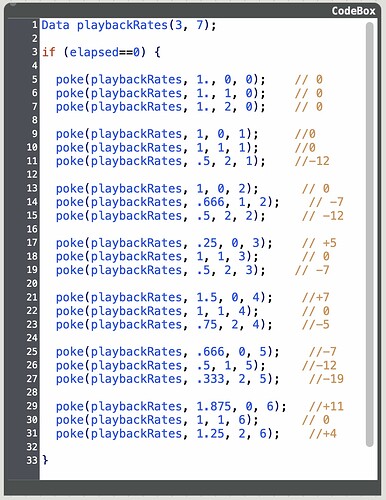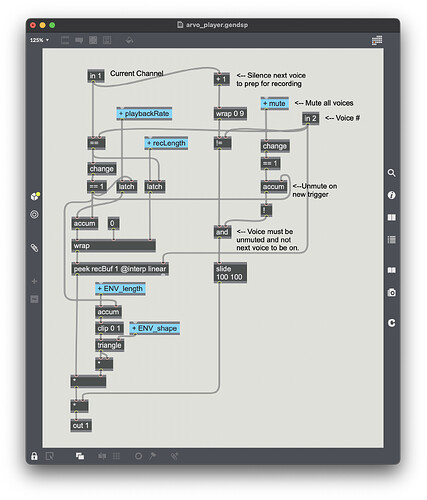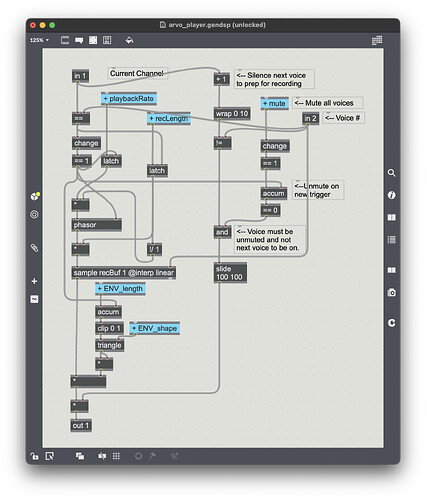I’ve made a granulator for my patch.init() that captures incoming audio gated with an envelope follower. Audio is sliced and recorded into 8 different channels of a buffer. The grains loop and rise/fall over a long global envelope. I use a second buffer to store different rates for an accumulator to pitch-shift the grains as they play back. Nothing extraordinary.
However, certain playback rates are affected by unusual drifting of pitch at moments in longer envelopes. Shifting up 11 semitones (1.875), up 4 semitones, (1.25), and up or down an octave or two (2, .5, .25) or other rational numbers do just fine. It’s the shifting down 7 semitones (.666) or down 19 semitones (.333) that cause the strange drifting. These values are stored in a buffer that’s initiated on startup (see video). I’ve tried expressing them with various degrees of precision or using fractions. Still, the weird drifting persists for the “irrational-ish”(?) numbers no matter what.
I’ve tried putting this patch on my Daisy submodule in the Patch.Init() as well as my Daisy Patch. Same result. I’ve tried fast math on and off for both. I’ve tried flashing with the debugger. But when running my patch in gen~ on the computer, I don’t have these problems. I’ve really tried to dig into this but can’t figure it out.
I performed with this patch the other night (which I call “Arvo,” because I use it with my violin and can get some evocative results), but I was using shorter envelopes so I didn’t notice the problem. It only seems to happen over the course of longer envelopes, as you can hear in the video (starting at 1:07) when I switch to the second channel of the buffer for playback rates 1, .666, and .5.


